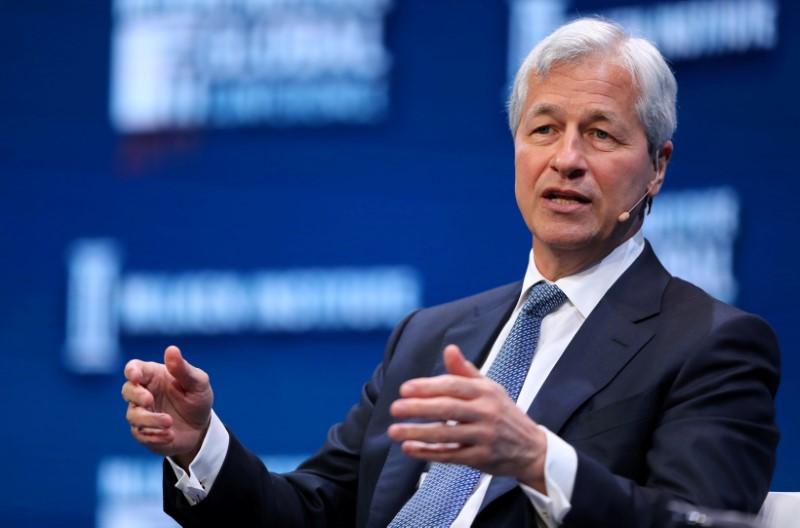JPMorgan Chase CEO Jamie Dimon believes U.S. interest rates will likely rise above 5 percent because of “underlying Inflation.” This is higher than what the Federal Reserve is currently projecting, as inflation remains stubbornly high.
Jamie Dimon Says That Interest Rates Will Rise Above 5 Percent Because of ‘Underlying Inflation’

JP Morgan Chase CEO Jamie Dimon speaks during the Milken Institute Global Conference in Beverly Hills, Calif., on May 1, 2017. Reuters/Mike Blake/File Photo




